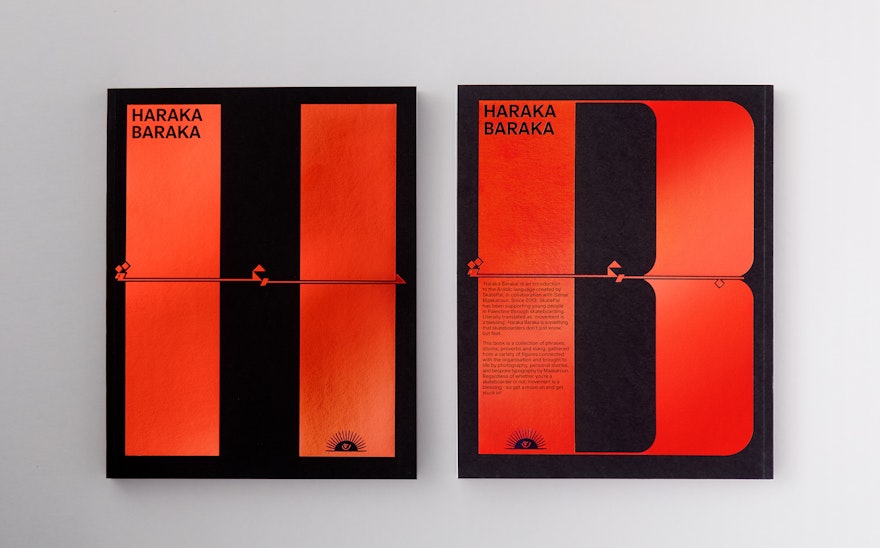
Literally translated as ‘movement is a blessing’, ‘Haraka Baraka’ is commonly used to describe the importance of play and activity for one’s well-being

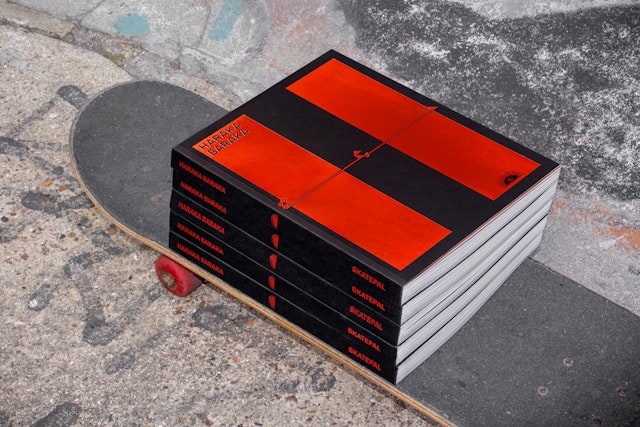
Local Arabic phrases, proverbs, idioms and slang are interspersed with photography and custom typography to form an illustrated, joyful introduction to the Arabic language.
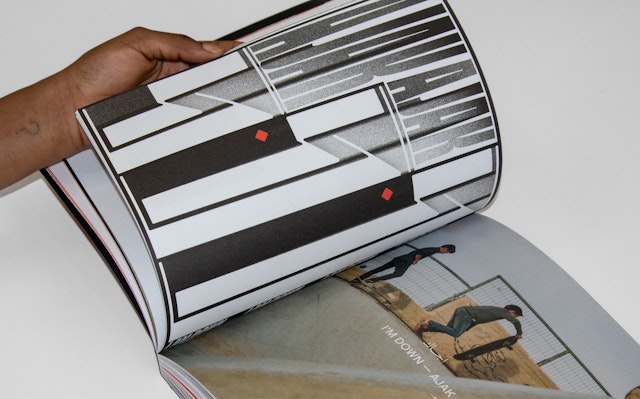
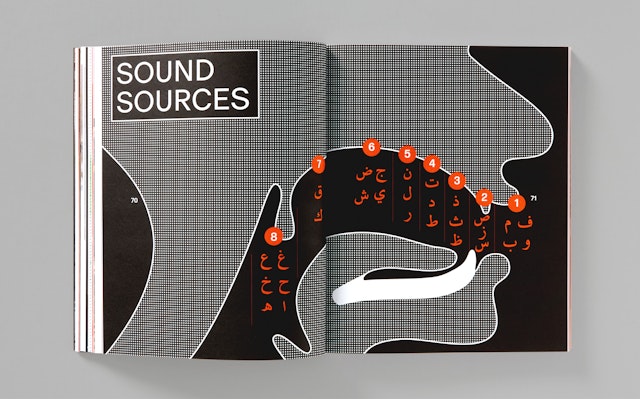



‘Afrit’ (little demon), often used to chastise cheeky children, is embodied by an angular, deconstructed type, arranged to conjure up a menacing face.
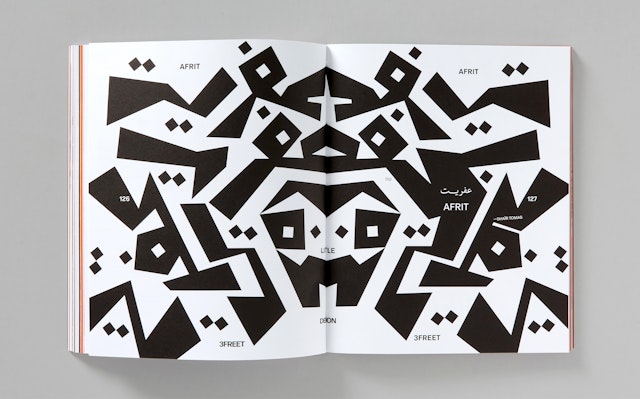
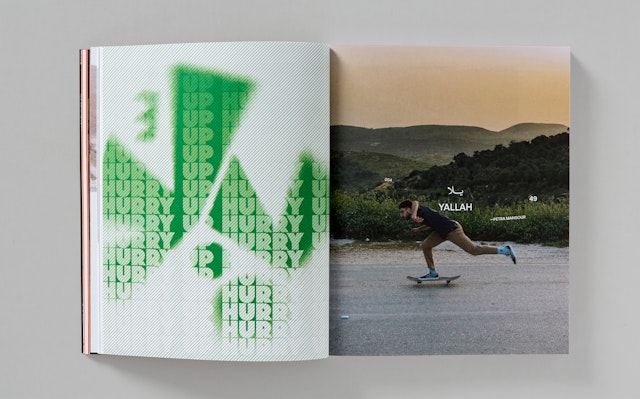
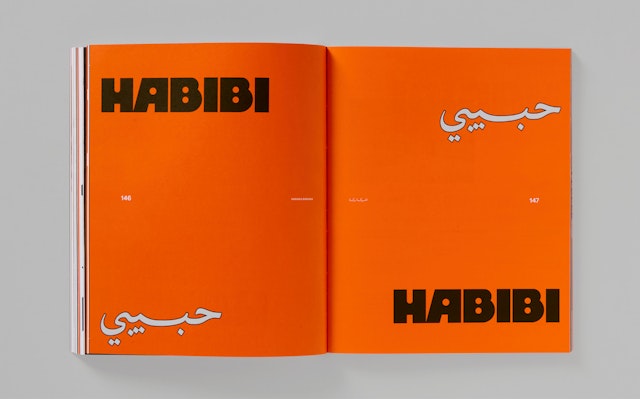
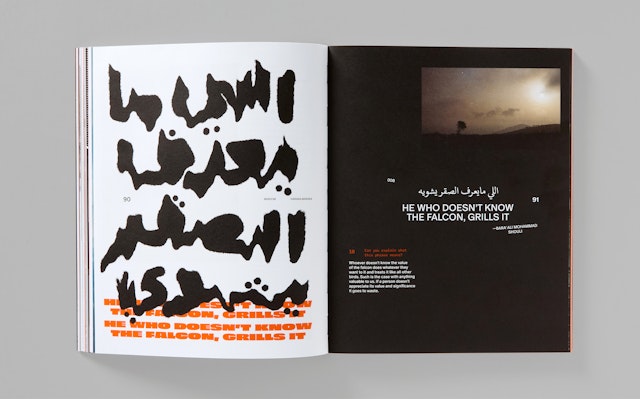
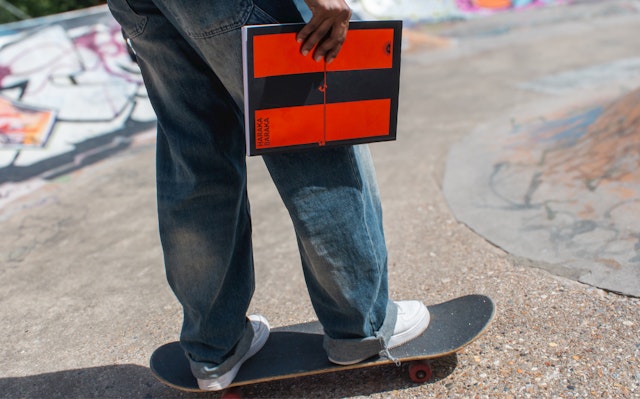
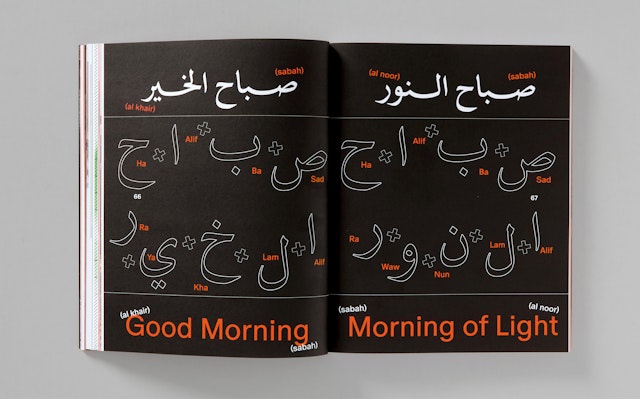

The design embraces play above all else, an approach that deliberately runs counter to many people’s expectations or assumptions about the Arabic language.
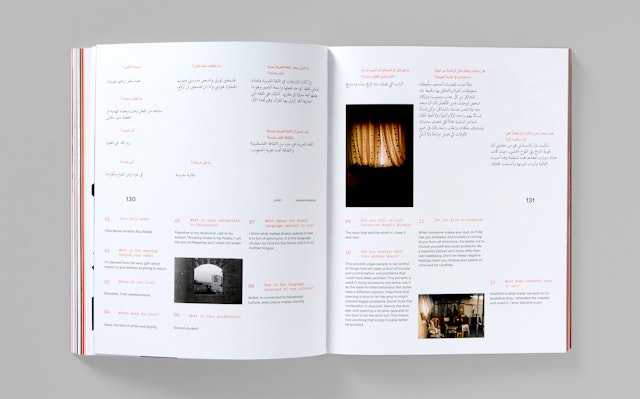
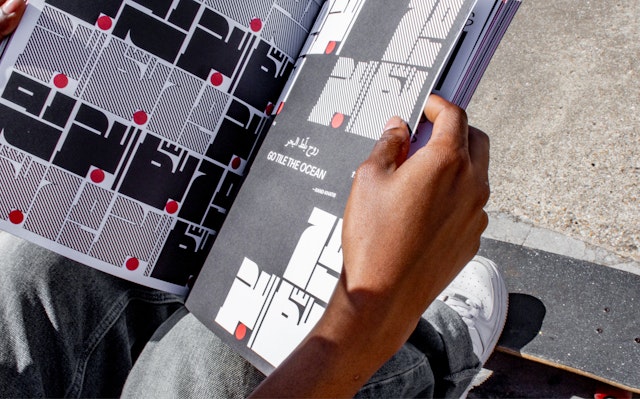
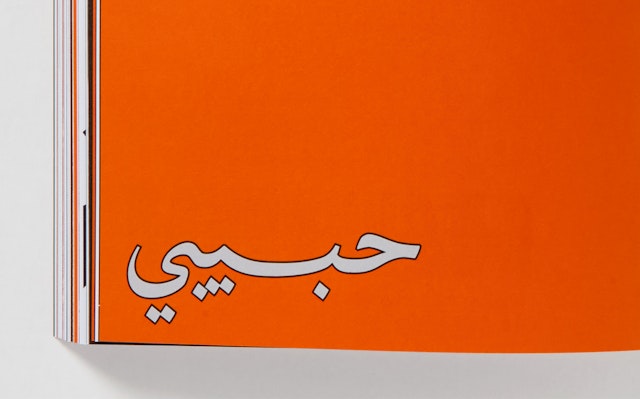
Founded in 2013 by Charlie Davis, SkatePal is a non-profit organisation that uses skateboarding as a tool to provide children and young people with greater access to cultural, educational and sporting opportunities.
Literally translated as ‘movement is a blessing’, Haraka Baraka is commonly used to describe the importance of play and activity for one’s well-being. The book is the result of a pro-bono collaboration between SkatePal and Pentagram partner Samar Maakaroun. It intersperses local Arabic phrases, proverbs, idioms and slang with photography and custom typography to form an illustrated, joyful introduction to the Arabic language.
To formulate the book’s overarching narrative, SkatePal reached out to its growing community of friends, family and followers with a questionnaire, asking them to share their favourite Arabic phrases and explain their personal resonance. The answers were transcribed in both Arabic and English.
Each person answered the Q&A differently, and Samar and team embraced these inconsistencies. Dividing the book in two horizontally—with the Arabic text at the top of the page and the English at the bottom—they positioned the same questions in the same place throughout, leaving blank spaces where questions were left unanswered, or using these spaces as an opportunity to bring in other visual elements.
The design embraces play above all else, an approach that deliberately runs counter to many people’s expectations or assumptions about the Arabic language—routinely associated with religion and politics. Accompanying each of the final 22 phrases featured is an original, type-led illustration, which takes its visual cues from the meaning behind the phrase.
Ajak (I’m down) physically reorientates itself, with the Arabic extending out from its English transliteration and dropping to the foot of the page. ‘He who doesn’t know the falcon, grills it’— referencing a person who is ignorant to the value of something—appears frazzled and drooping, as if suffering from heat exhaustion. Afrit (little demon), often used to chastise cheeky children, is embodied by an angular, deconstructed type, arranged to conjure up a menacing face. An unapologetic palette of orange, red and black emboldens the graphics, making every page a riot of activity.
The phrases demonstrate an economy of words that is so unique to Arabic. Entire universes and narratives exist within a sentence; some have meanings that change with time, representing the here and now or times past; context is everything. Ultimately, language is a conduit for culture, uncovering the attitudes, values and traditions that shape the lives of its native speakers.
Photography runs throughout, captured by 11 different contributors, in scenes that range from skaters in action to vernacular shots of daily life—quiet streets, building facades, bustling kitchens; from portraits of residents and visitors across the generations, to urban and rural landscapes, to details of hands, or graffiti, or local wildlife. The placement and sizing of images are fluid, all working together to build a sense of place and belonging, a true multiplicity of experience.
For those who wish to delve deeper, the book contains several sections that provide linguistic context and accessible guides to help readers grasp the basics. While Haraka Baraka is not intended for learning Arabic, it may inspire you to start!
The book is available to buy now through SkatePal’s website.
